 2012 Toyota 86 I Dimensions, Size & Specs
2012 Toyota 86 I Dimensions, Size & SpecsMeasurements of the 2012 Toyota 86 I, engineered for optimal performance and comfort
| Dimensions | |
|---|---|
| Length: | 4240 mm166.9 in13.9 ft |
| Width: | 1775 mm69.9 in5.8 ft |
| Height: | 1285 mm50.6 in4.2 ft |
| Ground Clearance: | 120 mm4.7 in0.4 ft |
| Trunk Capacity: | 243 liter8.6 cu ft |
| Weight Specifications | |
| Curb Weight: | 1230-1253 kg2712-2762 lbs |
| Maximal permitted Weight: | 1670-1700 kg3682-3748 lbs |
| Tire Specifications | |
| Rims Size: | 17-inch rims:
|
| Tire Size: |
|
The Toyota 86 I, produced between 2012 and 2016, is a compact sports coupe designed to offer an engaging driving experience with a sleek and aerodynamic profile. Measuring 4240 mm (166.9 inches) in length, 1775 mm (69.9 inches) in width, and 1285 mm (50.6 inches) in height, the Toyota 86 I stands out with its low-slung stance that emphasizes agility and sporty aesthetics. The car’s curb weight ranges from 1230 to 1253 kg (2712 to 2763 lbs), striking a balance between lightweight construction and structural rigidity, which contributes to its excellent handling characteristics.
The coupe comes with a maximum permissible weight of 1670 to 1700 kg (3682 to 3748 lbs), accommodating passengers and cargo comfortably without compromising performance. It offers a luggage capacity of 243 liters (8.6 cubic feet), sufficient for daily essentials and light travel needs, typical for a vehicle in the compact coupe category. One notable design feature is its low ride height or ground clearance, set at 120 mm (4.7 inches), which enhances road grip and stability but requires mindfulness on rough terrain.
The Toyota 86 I is equipped with 7J x 17 rims paired with 215/45 R17 tires, combining a sporty look with performance-oriented grip and road feedback. Overall, the Toyota 86 I represents a well-proportioned coupe that blends performance, style, and practicality. Its dimensions and specifications make it a competitive choice for enthusiasts seeking a lightweight, nimble, and visually appealing coupe in the sports car segment.
Discover the standout features that make the 2012 Toyota 86 I a leader in its class
Have a question? Please check our knowledgebase first.
The Toyota 86 I, produced from 2012 to 2016, has a length of 4240 mm (approximately 166.9 inches), a width of 1775 mm (about 69.9 inches), and a height of 1285 mm (around 50.6 inches). These dimensions place the 86 solidly in the compact sports coupe category, giving it a sporty profile with a low stance that enhances aerodynamics and handling.
The curb weight of the Toyota 86 I ranges from 1230 to 1253 kg (about 2712 to 2763 pounds). This relatively light weight helps the car achieve agile handling and responsive performance, essential traits for a sports coupe. The lighter build contributes to better acceleration and fuel efficiency, while maintaining structural integrity for safety and rigidity during spirited driving.
The Toyota 86 I offers a luggage capacity of 243 liters (approximately 8.58 cubic feet). While not expansive, this trunk space is sufficient for everyday carry items such as groceries or small suitcases. The compact coupe design prioritizes driving dynamics over cargo space, but the 243-liter capacity allows for practical use on short trips or weekender activities.
The Toyota 86 I features a ride height (ground clearance) of 120 mm (around 4.7 inches). This relatively low ground clearance contributes to improved stability and handling by lowering the center of gravity. However, it requires cautious driving over speed bumps and rough roads to avoid scraping the underbody.
Yes, the Toyota 86 I fits comfortably into a standard garage. Its length of 4240 mm (166.9 inches), width of 1775 mm (69.9 inches), and height of 1285 mm (50.6 inches) make it smaller than typical dimensions requiring garage space. Most standard residential garages have sufficient length, width, and height clearance to accommodate this coupe without difficulty.
The Toyota 86 I does not have a direct predecessor with the exact same market placement, as it was developed in partnership with Subaru (known as the Subaru BRZ). Compared to the Subaru BRZ of the same generation, the dimensions are virtually the same. Both cars emphasize a lightweight, compact sports coupe design, maintaining similar length, width, and height to prioritize driving dynamics.
The Toyota 86 I is slightly smaller and lighter compared to some rivals like the Subaru BRZ and Mazda MX-5 Miata in terms of weight and footprint, though these cars have different body styles and purposes. It offers a competitive compact coupe size with a low height at 1285 mm, distinguishing it with a more aggressive stance compared to some slightly taller coupes from competitors like the Ford Mustang or Nissan 370Z, which are larger and heavier cars in the same sports segment.
The Toyota 86 I comes equipped with 7J x 17 rims paired with 215/45 R17 tires. These sizes are chosen to provide a good balance between grip, steering response, and ride comfort. The 17-inch wheel diameter is common in sports coupes, allowing for a relatively low-profile tire that improves cornering performance while maintaining a reasonable ride quality.
The maximum weight capacity of the Toyota 86 I ranges from 1670 to 1700 kg (approximately 3683 to 3748 pounds). This includes the vehicle's curb weight plus passengers, cargo, and fluids. This capacity ensures the car can comfortably handle a full load including two adults, luggage, and fuel without compromising safety or handling. It reflects the practical limitations of the compact sports coupe configuration.
With a height of just 1285 mm (50.6 inches), the Toyota 86 I has a low and sleek profile, benefiting aerodynamic efficiency and reducing drag. This low height contributes to a low center of gravity, improving handling and stability. However, the lower seating position and compact cabin might reduce outward visibility compared to taller vehicles, requiring drivers to adapt to limited rear and side views, especially in traffic or tight spots.
Discover similar sized cars.
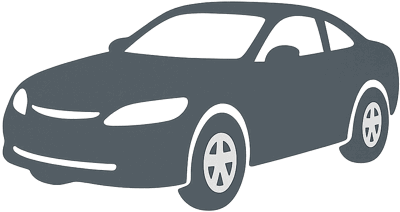
| Production: | 2021-present |
|---|---|
| Model Year: | 2022 |
| Length: | 4265 mm167.9 in |
| Width: | 1775 mm69.9 in |
| Height: | 1310 mm51.6 in |
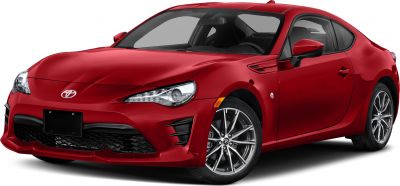
| Production: | 2016-2021 |
|---|---|
| Model Year: | 2016 |
| Length: | 4234 mm166.7 in |
| Width: | 1775 mm69.9 in |
| Height: | 1285 mm50.6 in |
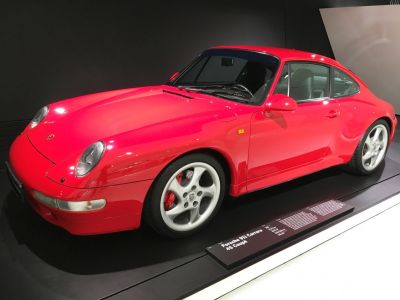
| Production: | 1994-1998 |
|---|---|
| Model Year: | 1995 |
| Length: | 4245-4260 mm167.1-167.7 in |
| Width: | 1735-1855 mm68.3-73.0 in |
| Height: | 1270-1315 mm50.0-51.8 in |
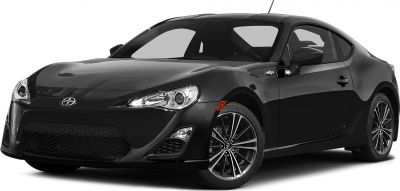
| Production: | 2013-2016 |
|---|---|
| Model Year: | 2014 |
| Length: | 4234 mm166.7 in |
| Width: | 1775 mm69.9 in |
| Height: | 1285 mm50.6 in |
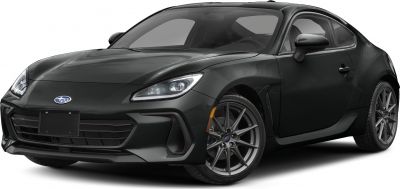
| Production: | 2021-present |
|---|---|
| Model Year: | 2022 |
| Length: | 4265 mm167.9 in |
| Width: | 1775 mm69.9 in |
| Height: | 1311 mm51.6 in |
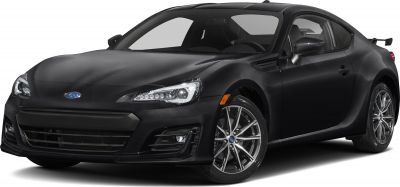
| Production: | 2016-2020 |
|---|---|
| Model Year: | 2017 |
| Length: | 4240 mm166.9 in |
| Width: | 1775 mm69.9 in |
| Height: | 1320 mm52.0 in |
